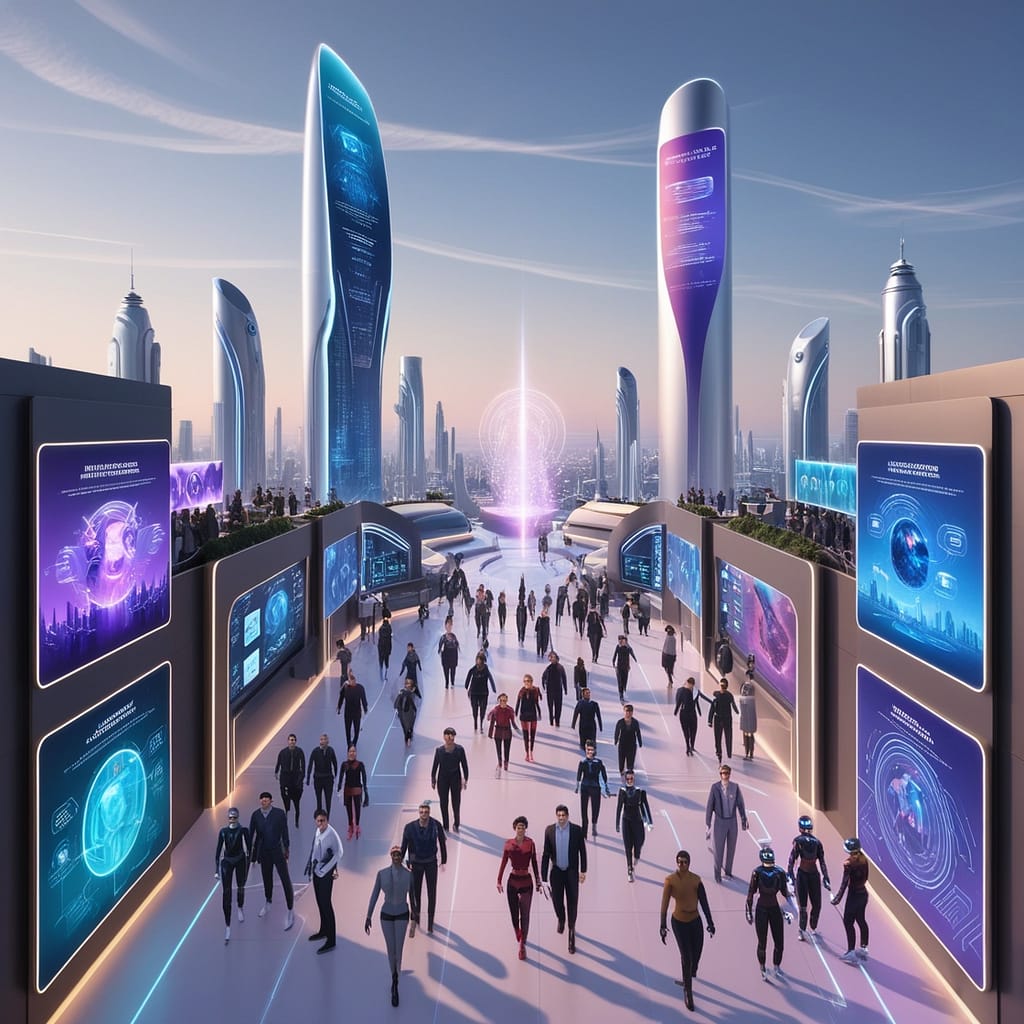The concept of the metaverse, a collective virtual shared space created by the convergence of virtually augmented physical reality and physically persistent virtual space, is evolving rapidly. This digital frontier promises to revolutionize the way we interact, work, and play. Recent developments in technology and a surge of investment are driving the metaverse from a futuristic vision into a present-day reality.
Technological Advancements
Virtual Reality (VR) and Augmented Reality (AR)
One of the cornerstones of the metaverse is the advancement in VR and AR technologies. Companies like Oculus (owned by Meta Platforms, formerly Facebook), HTC, and Sony are developing increasingly sophisticated VR headsets that provide immersive experiences. AR technologies, like those seen in Microsoft’s HoloLens and various smartphone apps, overlay digital information onto the physical world, enhancing real-world interactions with digital elements.
Blockchain and Cryptocurrency
Blockchain technology and cryptocurrencies are also playing a crucial role in metaverse development. Decentralized platforms like Decentraland and The Sandbox allow users to buy, sell, and trade virtual real estate and other digital assets using cryptocurrencies. These platforms use blockchain to ensure secure and transparent transactions, fostering trust and encouraging investment in virtual economies.

Artificial Intelligence (AI)
AI is enhancing metaverse experiences by powering intelligent avatars, automating virtual world management, and personalizing user interactions. AI-driven NPCs (non-player characters) can provide more realistic and engaging interactions within virtual environments, creating a more immersive experience for users.
Corporate Investments and Collaborations
Meta Platforms, Inc.
Meta Platforms, Inc. (formerly Facebook) is at the forefront of metaverse development. CEO Mark Zuckerberg has outlined ambitious plans to create a fully immersive digital environment where people can work, socialize, and play. Meta is investing heavily in VR and AR technologies, as well as software development to create seamless and interconnected virtual worlds.
Microsoft
Microsoft is another major player in the metaverse space. The company’s Mesh platform aims to enable collaborative virtual experiences across different devices, including VR headsets, PCs, and smartphones. Microsoft’s acquisition of Activision Blizzard is expected to further bolster its metaverse ambitions by integrating popular gaming franchises into its virtual ecosystem.
Nvidia
Nvidia’s Omniverse platform is designed to facilitate the creation of interconnected 3D virtual worlds. By providing tools for real-time 3D design collaboration and simulation, Nvidia is enabling artists, designers, and developers to build and explore complex virtual environments. The company’s powerful GPUs are also essential for rendering the high-quality graphics that the metaverse demands.

Social and Economic Implications
New Forms of Social Interaction
The metaverse has the potential to transform social interactions by providing new ways for people to connect and communicate. Virtual meetups, concerts, and events can bring people together from around the world, transcending geographical boundaries. These digital gatherings can foster a sense of community and belonging, even among physically distant individuals.
Economic Opportunities
The metaverse is creating new economic opportunities in the form of virtual real estate, digital goods, and services. Entrepreneurs and businesses can establish virtual shops, galleries, and offices, reaching a global audience without the constraints of physical location. The rise of virtual economies also opens up new job opportunities in fields such as virtual world design, digital asset creation, and virtual event management.

Challenges and Considerations
Despite its potential, the metaverse also presents several challenges. Issues related to privacy, security, and digital ownership need to be addressed to ensure user trust and safety. Additionally, the digital divide could exacerbate inequalities, as access to advanced technologies and high-speed internet is not evenly distributed across the globe.
Conclusion
The metaverse is poised to become a significant part of our digital future, with ongoing developments in technology, corporate investments, and evolving social norms driving its growth. As we navigate this new frontier, it is crucial to consider the implications and challenges to create a metaverse that is inclusive, secure, and beneficial for all.
The journey into the metaverse is just beginning, and its potential to transform our digital experiences is immense. By embracing innovation and addressing the associated challenges, we can shape a metaverse that enhances our lives in ways we have yet to imagine.





